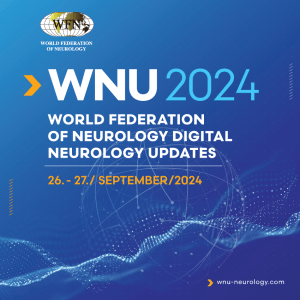
The Keto Live Event in Bergün, Switzerland, was the first medical conference in Switzerland with an entire focus on Non-Communicable Diseases (NCD) and the use of a Ketogenic Diet (KD) as a prevention, but also as a powerful treatment tool.
It brought together scientists from all around the world who presented the latest research in their field. The conference was open to healthcare professionals, but also to the general public interested in health and the KD. The presentations were divided into four main topics: heart and cardiovascular diseases, cancer, diabetes and neurology – neuropsychiatry. Each topic had one whole day of presentations and discussions dedicated to it, which made attending easy as one could choose to attend only on certain days, although I would definitely recommend attending to it entirely.
The conference was recognised as a Continuing Medical Education (CME) tool for healthcare professionals and accredited with 35 CME credits. It was free of any pharmaceutical advertising, which is something we rarely get to see at a medical conference nowadays, and all lecturers had to provide their conflict of interest. The participants also had the possibility of attending three workshops and every evening a different documentary movie on the topic was playing at the cinema room of the hotel. The delicious meals, all matching a KD, were made from local organic products and were included in the conference fee.
Dr John Schoonbee from SwissRe, Switzerland opened the conference with his talk “Why we have to rethink” referring to strategies for NCD. Supported by the Charlie Foundation, he introduced the first topic in neurology, epilepsy and KD. Michel Lundell, from Sweden, the inventor of a Ketone breath-monitoring device who also suffers from epilepsy, spoke about the use of KD as a treatment for children and adults suffering from this disease. Unfortunately, nowadays, the diet is recommended as a last-resort, only in drug-resistant epilepsy. Later on, Sybille Kraft from France presented the use of a KD as a first-line treatment for Angelman Syndrome.
The 2nd day was dedicated to cardiovascular diseases and we had lecturers like Dr Aseem Malhotra, Ivor Cumming and Dr Schoonbee. Dr Malhotra spoke about the role of lifestyle choices, cholesterol and statins in heart diseases while Ivor Cumming developed the topics of hyperinsulinemia, its role in atherosclerosis and the use of a Coronary Calcium Score in cardiovascular risk assessment. Lastly, Dr Schoonbee held an interesting talk on why insurance companies should care about nutrition and who would benefit from better nutrition guidelines.
On the day dedicated to cancer, we had world-known cancer researcher Professor Dr Thomas Seyfriend who held two amazing presentations. He talked about cancer development, cancer metabolism, mitochondrial dysfunction and metabolic therapies (Press – Pulse Therapies) for cancer, their use and results. The conflicting question of nutrition in cancer patients and the inconsistent and changing information that patients receive was the main topic of Patricia Daly and Domini Kemp talks. We also listened to Michel Lundell explaining the potential use of ketones and Julia Tulipan who presented the factors that may influence the feasibility and implementation of a KD in cancer patients.
The 4th day was focused on diabetes with Dr Ian Lake from the UK who spoke about type 1 diabetes and the use of a KD in managing the disease, while Amy McKenzie from Virta Health, USA covered the topic of type 2 diabetes (T2D). She presented the results of their 2 years’ prospective study, which demonstrates that T2D biomarkers can be reversed using a KD. Lastly, Prof Jörg Spitz from Germany evidenced the importance of vitamin D for health.
On the last day, Elena Gross and Dr Georgia Ede carried on the topic of neuropsychiatric and neurodegenerative diseases. Elena Gross started the day with a puzzling question: “Could migraines act as an energy-conserving behaviour in an energy deficient brain?” and showed the potential use of exogenous ketones for migraines. Dr Georgia Ede spoke about nutritional psychiatry, metabolic disturbances in psychiatric conditions and important blood work psychiatrists should ask for their patients. She also presented the similarities between Alzheimer’s and Parkinson’s disease and explained why a nutritional intervention could be beneficial for both diseases. The conference ended with a panel discussion about future projects and an introduction to the 2020 event.
Overall, the first edition of the Keto Live Event highlighted the existing science behind the role that food holds in NCD, a role that is often overlooked or unclear among many conflicting studies. It brought together researchers, clinicians and people interested in health from around the world to discuss and promote further collaboration in the beautiful town of Bergün, right in the centre of Europe.
What will the second conference bring? While the first event was amazing, the second one looks even more promising. It will have international world-known lecturers like Professor Stephen Cunnane and Dr Georgia Ede from the USA, Dr David Unwin from the UK, Dr Jean-Pierre Spinosa from Switzerland, Prof Dr Markus Seämann from Austria, Prof Dr Helene von Bibra from Germany and many more. Themes like brain development, multiple sclerosis, psychotropics, autoimmune diseases, cardiovascular diseases, kidney diseases and cancer will be discussed, while answering questions like: Is it possible to reverse cardiovascular diseases, what are the ketogenic metabolic therapies and what are they used for?
Save the Date for the 2nd International Keto Live Conference in Switzerland from 8th – 12th of June 2020. You can find more details including the new program on the official website – www.keto-live.com

